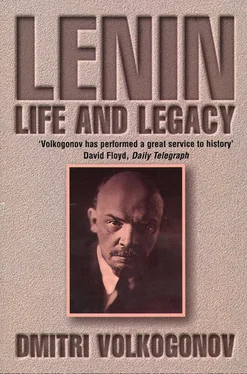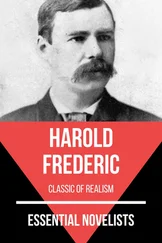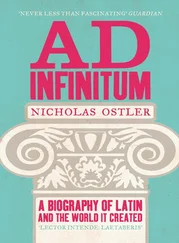Stalin also knew a lot about Lenin, notably from the Soviet rather than the émigré period. The archives show that Stalin received no fewer than 150 personal notes, cables, letters and orders from Lenin. But many of them are fragments of telegram tape, second copies of typescript and other indirect evidence. I have alluded in my book on Stalin to the dubious authenticity of such materials. After becoming supreme dictator, and with the help of his yes-men, Stalin introduced some significant falsifications into the correspondence with Lenin, which had grown rapidly with his appointment to the post of General Secretary of the Communist Party in 1922. After his own authorized biography had appeared, it seems Stalin also planned to bring out a book on Lenin, though he never did. 16
Perhaps it was another leading Bolshevik, Lev Kamenev, who received the most correspondence, 350 letters and memoranda by my reckoning, most of them still unpublished. He was much trusted by Lenin, even on personal matters, for example on Lenin’s relationship with his mistress Inessa Armand at the time he and Lenin were sharing an apartment in Poland. Kamenev’s knowledge of Lenin is important because he was the first editor, with Lenin’s direct participation, of Lenin’s collected works (1920–26). Kamenev, however, wrote little, and left nothing to compare in size with the heritage of his constant friend Zinoviev.
Grigory Yevseyevich Zinoviev and his wife Z.I. Lilina were close family friends of Lenin, and Zinoviev probably received more personal letters from Lenin than any other leader. The new Communist top brass were not modest: once in power, they took up residence in the Kremlin, expropriated palaces and estates, gave cities their names, erected monuments to themselves, surrounded themselves with bodyguards and doctors, and quickly set about publishing their collected works. Zinoviev’s best work on Lenin was possibly his introduction to the study of Leninism, in which he exhorted his readers to ‘study Lenin at first-hand! To know Lenin is to know the road to the victory of the world revolution.’ 17 In the early 1930s, when Zinoviev’s days were numbered, he wrote several chapters of a book on Lenin, hoping it would save him. Stalin would not so much as look at what his prisoner had written, for he had long ago decided the fate of Zinoviev, and Kamenev too.
Most of Lenin’s biographers have understandably concentrated on his social and political rôle, but it is also important to balance that against his strictly human, moral and intellectual qualities, and to do so without forgetting the historical context. The historical Lenin was a child of his time: troubled, cruel, expectant, alarming. History neither accuses nor justifies, it is a means to understand, to discern the patterns that characterize a distant age. We say the word ‘Lenin’ and we see in our mind’s eye a man whose high forehead and large bald patch suggest the embodiment of intellect – as well as the commonplace.
Gleb Krzhizhanovsky, an early associate of Lenin’s who held high office in the Soviet government, made an attempt in his book Velikii Lenin to define the essence of Lenin’s genius (to which the book was dedicated), but was more successful in describing his subject’s exterior appearance. It was, he wrote, simple and modest: ‘Short of stature and wearing his usual cloth cap, he could easily have passed unnoticed in any factory district. All one could say of his appearance was that he had a pleasant, swarthy face with a touch of the Asiatic. In a rough country coat he could just as easily have passed in a crowd of Volga peasants.’ Clearly, this description was intended to stress the ‘folksiness’, the ‘depth’, the ‘link with the lower orders’, but Krzhizhanovsky also noticed an important element: Lenin’s eyes, the mirror of the human mind. Those eyes, he wrote, ‘were unusual, piercing, full of inner strength and energy, dark, dark brown …’ 18 It was a feature noticed by many, especially by the writer A.I. Kuprin in his graphic description, ‘Instant Photography’. Lenin, he wrote, ‘is short, broad-shouldered and lean. He looks neither repellent, militant nor deep-thinking. He has high cheekbones and slanting eyes … The dome of his forehead is broad and high, though not as exaggerated as it appears in foreshortened photographs … He has traces of hair on his temples, and his beard and moustache still show how much of a fiery redhead he was in his youth. His hands are large and ugly … I couldn’t stop looking at his eyes … they are narrow; besides which he tends to screw them up, no doubt a habit of concealing short sight, and this, and the rapid glances beneath his eyebrows, gives him an occasional squint and perhaps a look of cunning. But what surprised me most was their colour … Last summer in the Paris zoo, seeing the eyes of a lemur, I said to myself in amazement: at last I’ve found the colour of Lenin’s eyes! The only difference being that the lemur’s pupils were bigger and more restless, while Lenin’s were no more than pinpricks from which blue sparks seemed to fly.’ 19 The writer Ariadna Tyrkova, who had seen Lenin at close quarters more than once, drew a simpler picture: ‘Lenin was an evil man. And he had the evil eyes of a wolf.’ 20
A physical detail, while of no decisive significance to Lenin’s political portrait, may nevertheless highlight his main characteristic, namely his powerful mind, a mind that was too often not merely pragmatic, flexible and sophisticated, but also malevolent and perfidious. His radical pragmatism explains the actions he took to bring about the defeat of his own country in the First World War in order to get his party into power. His radicalism compelled him to accept the loss of entire national regions of the former tsarist empire, although when complete disintegration was threatened he cast aside his internationalism and started defending that empire, by then transformed into its Soviet form.
It was power, not love of fatherland, that prompted him to save Russia. He had, after all, shown his contempt – to put it mildly – for Russia and the Russians. Writing in the autumn of 1920 to Jan Berzin, a Central Committee member of Latvian origin, about publishing Communist propaganda, he complained that things were going badly. He advised Berzin to invite two Swiss comrades from Zurich, and to pay them ‘arch-generously’. He went on: ‘Hand out the work to Russian idiots: send the cuttings here, but not occasional issues (as these idiots have been doing until now).’ 21 Without a blush, he could call his fellow-countrymen idiots who could only be trusted to do the simplest tasks, while left-wingers from Zurich had to be paid ‘archgenerously’. This is only a short note, but a very eloquent one, and similar evidence of Lenin’s attitude to Russianness is abundant, though of course well hidden in the archives.
In the middle of 1922 the civil war was over and Russia lay in ruins. It seemed that at last the cruelty would end. Lenin pointed out that ‘although coercion is not our ideal’, the Bolsheviks could not live without it, even where ideas, views and the human spirit are concerned. He recommended the death penalty, commuted in mitigating circumstances to deprivation of liberty or deportation abroad, ‘for propaganda or agitation or belonging to or aiding organizations supporting that part of the international bourgeoisie that does not recognize the … Communist system’. 22 This proposal was later incorporated into the infamous Article 58 of the Criminal Code, under which millions constructed and then filled the concentration camps. Lenin is the source of the totalitarian ideology of intolerance. By creating the Cheka, the punitive organ of the dictatorship and his favourite brainchild, Lenin influenced the outlook of the Communists who soon came to believe that the amoral was moral, if it was in the Party’s interest. S.I. Gusev, a member of the Party Central Control Commission, addressing the XIV Congress in December 1925, declared: ‘Lenin once taught us that every member of the Party must be an agent of the Cheka, that is, we must watch and inform … I believe every member of the Party should inform. If we suffer from anything, it is not from denunciation, but from non-denunciation. We might be the best of friends, but once we start to differ in politics, we must not only break off our friendships, we must go further and start informing.’ 23 Leninist doctrine had donned the police agent’s cloak.
Читать дальше












